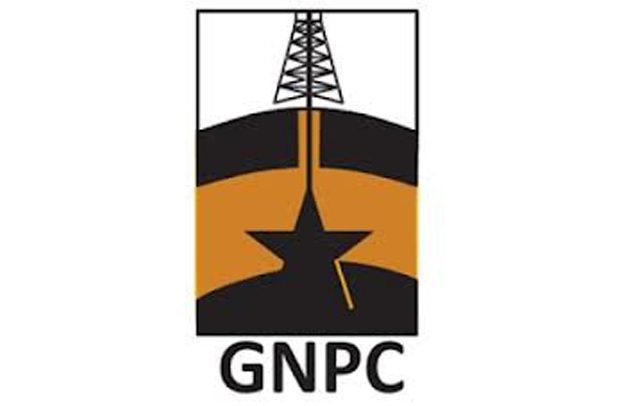
According to the company, all its transactions and the terms under which they were executed with Litasco were duly approved by the ministers of finance and energy as a package.
In a letter dated July 31, 2018 and addressed to the Minister of Finance in response to queries about possible losses in the sale of Ghana’s crude oil, GNPC explained that the transaction should not be seen as straight crude oil sales but rather in the context of multiple risk-driven transactions outlined.
GNPC is convinced that there were some misunderstandings as to the nature of those transactions and even how that pricing was done.
The corporation explained that it could not have predicted the recent price trends in response to geopolitical events in accepting the Litasco pricing options.
It proposed that government may adopt a policy of using a single pricing option such as default or monthly average.
“This approach will not necessarily guarantee the best price and could lead to huge discounts.
“Further, it may adversely affect price risk, broad market acceptability of our crude blends and liquidity management buyers,” it said.
But for these multiple transactions, GNPC would have been stuck with its standard options in pricing TEN crude oil.
$279m Litasco guarantee to BOST, ECG
Currently, Litasco has provided $279 million guarantee, comprising $100 million for Bulk Oil Storage and Transportation Company Limited (BOST) and $175 million for Karpowership to ensure stable power supply as well as clear the debt of BOST.
Averting a default by BOST and its adverse consequences, Ghana's credit rating in the international financial markets was certainly an advantage.
$1.8m savings on HFO
Litasco is also said to have aided in the “supply of Heavy Fuel Oil (HFO) at a competitively priced premium of $6.5 per metric tonne as against $9 per metric tonne for an annual supply of about 720,000 metric tonnes”.
“Annual savings of $1.8 million will be made at such price premium compared with previous supply by Trafigura.”
GNPC owes Litasco $80m
Currently, GNPC owes Litasco over $80 million for Heavy Fuel Oil (HFO) supplied to Karpowrship.
“Facilitation of the movement of the 450MW Karpowership barge to offtake 90MlVlbtu per day, representing about 50% of ENI gas production, will minimise onerous potential take or pay obligation to GNPC/GoG under the OCTP agreement.”
$55m saved per annum
Installation of the 450MW Karpowership barge in Takoradi will lead to the avoidance of gas transportation cost from Takoradi to Tema of USD1.68/MMbtu, amounting to $55 million per annum.
$10.3m savings to ECG
Provision of Bank Guarantee A and Guarantee B amounting $179 million at a cost of 3.25% per annum compared to 9% per annum previously charged to ECG.
Annual saving of $10.3 million would accrue to ECG.
Financing cost of about 5.25% (APR) on $100 million BOST loan, which is very competitive compared to similar loans sourced by government entities priced at about 9% per annum or more resulting in savings of about $8.25 million over two-year tenor of the loan.
$85m deposited Reserve Escrow Account
Provision of Bank A has facilitated a release of $85 million utilized by GNPC as cash collateral.
The amount, which otherwise would be borrowed by GNPC/GoG, is being deposited in the Reserve Escrow Account as required under the OCTP project.
Pricing option nomination
“Pricing option nomination is currently selected five or six quotation days Bill of Landing date before a cargo is priced.
“The buyer is required to select only one of the available pricing options. In event that no option is nominated, however, the GNPC default option is used… In offering pricing options, GNPC cannot foretell price trends and therefore would not know whether ‘highest’ or ‘lowest’ price will be obtained as inferred in the analysis contained in your letter,” GNPC explained.
For production on the TEN fields, six parcels had been lifted by three buyers; namely, Springfield, Glencore and Litasco.
GNPC says all these crude parcels “have traded at discounts reflecting the quality and liquidity of the TEN crude oil vis-a-vis Jubilee crude oil, which is listed and generally trading at a premium”.
Reduction in discounts
“The differentials for Springfield were discounts of $1.50 per barrel and $0.75 per barrel.
“Glencore lifted at a discount of $0.30 per barrel whereas Litasco’s liftings have attracted a discount of $0.65 per so far,” it noted.
GNPC indicated that the liftings by Springfield and Glencore were at the GNPC standard options.
But the liftings by Litasco were offered at GNPC standard pricing options plus an additional option requested by Litasco against the backdrop of multiple transactions.
“Litasco wanted an average of five consecutive price quotations from 30 quotations up to Bill of Landing date, a declaration of pricing option on Bill of Lading date and a review of the differential after every four liftings.
“But following the first lifting when crude oil prices had turned upwards in response to unexpected geopolitical events,” GNPC said, adding that “a further review of the pricing methodology was negotiated with Litasco”.
The GNPC stressed that the reference for GNPC’s crude oil is Platts Crude Oil Marketwire, which provides market reports on the global oil industry.
It, thus, said that the Bank of Ghana and the finance ministry’s use of Bloomberg as a reference is misplaced.
“…the source of your ‘low’ and ‘high’ prices for the crude oil liftings in question cannot be established in the Platts Crude Oil Marketwire source,” the GNPC argued.
“The losses reported in your letter…assume erroneously that GNPC is able to select the highest priced out pricing option ahead of time and impose it on the buyer.
“The choice of pricing option, where offered, is the preserve of the buyer and not the seller.”
It also said the finance ministry may have made certain overestimations.
“Since the TEN crude oil trades at a discount, the Achieved Price communicated by GNPC is net of this differential but includes a fee for exercising the option.
“Your analysis appears to have ignored discounts in respect of the TEN and SGN crude oils and therefore overestimated your calculated losses.”
GNPC further advised that the finance ministry’s analysis “needs to be viewed with utmost caution”. Read Full Story














Facebook
Twitter
Pinterest
Instagram
Google+
YouTube
LinkedIn
RSS